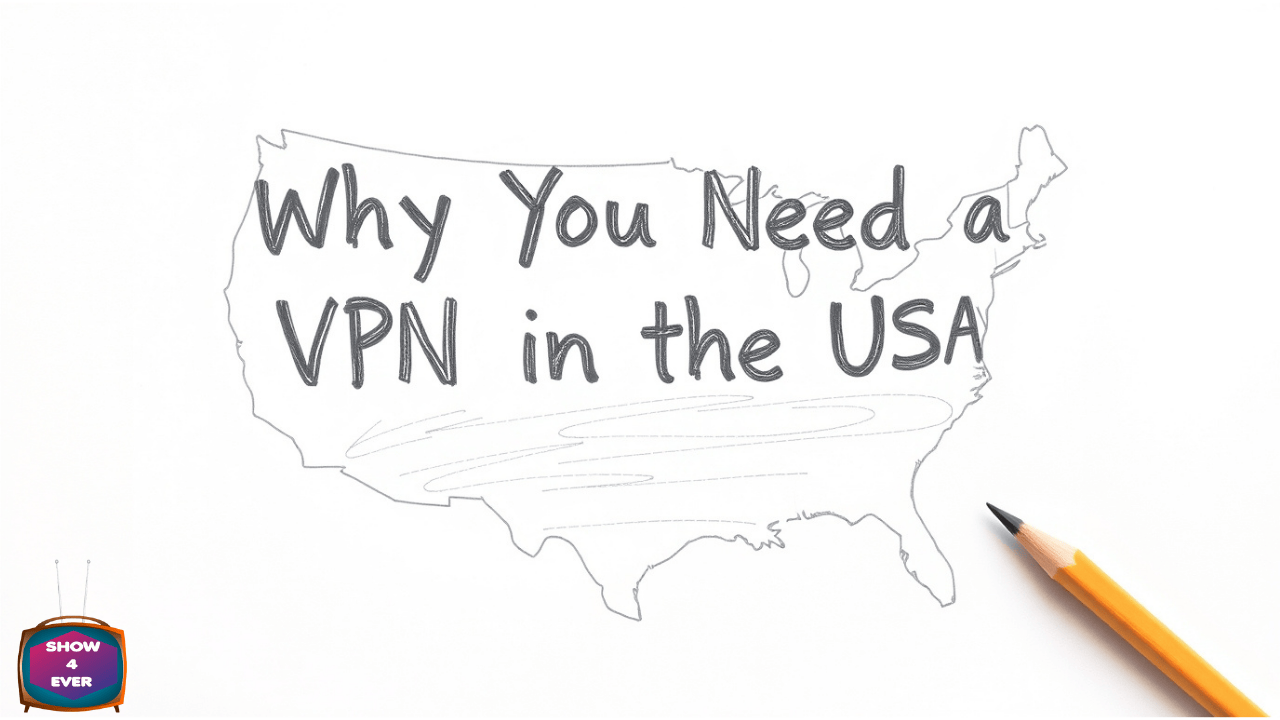Does IPTV Use a Lot of Data? Discover the Shocking Truth About Streaming Data Usage!

IPTV or Internet Protocol Television is experiencing massive growth and can be regarded as a revolutionary approach in the context of streaming evolution. But as more people switch to IPTV services, one burning question keeps popping up: How much data does IPTV consume? During the age of available streaming, bandwidth is limited and data limits are real, knowing how much data IPTV uses becomes important for the users. This article looks at this research question in detail, analyzing potential patterns of IPTV data usage concerning streaming quality, device type, and both live and on-demand programming.
It is high time to set forth on an exciting post to unmask the real consumption rate of IPTV and, as it’s even more crucial, to learn how to maximize the usage rate without outrunning your data allowance! Does IPTV Use a Lot of Data?
Understanding IPTV: Does IPTV Use a Lot of Data as Compared to Traditional Streaming?
While cable or satellite provides viewers with television programs through their networks IPTV transmits the content through the Internet. But is IPTV way more taxing on your data than these methods that have been previously outlined, or even streaming goliaths like Netflix or YouTube? If all chains that form the links between two nodes of a network are L-connection, then the answer to such a question is quite simple: yes, it is correct, but it is correct only due to several factors.
Current streaming platforms use buffering which means when it is playing a piece of content, it preloads the content depending on your internet speed, which can be very helpful when it comes to transmission since the quality of the stream is automatically adjusted downwards. ATV on the other hand runs as a steady stream throughout the content transmission without regarding your network profile. This constant can prove costly especially in terms of data especially if there are live broadcasts or elongated viewing periods. When you watch an hour of IPTV, what you are consuming is a virtual feed with little loss from the actual broadcast without the P2PTV-style hefty compression you now see in Netflix or Hulu.
IPTV makes use of data principally differently and that is what distinguishes the two in terms of data consumption. While on-demand systems such as Netflix download segments of content as you watch, IPTV streams all the pertinent information in real-time so no matter what, the waves of information cannot be stopped even as a streamer prepares for the commercials or momentarily pauses the feed. Now you might be asking, does IPTV consume a lot of data? So – even when the user compares it to those platforms that use buffer or pre-load contents.
How Streaming Quality Affects Your Bandwidth: Is IPTV Heavy in Terms of Network Consumption Particularly for High Definition and 4K Television?

When it comes to convenient features used with the Internet, it has have face to the question of streaming quality. HD and 4K streaming are very common among users of IPTV; however, does IPTV consume a lot of data when used for streaming at the said resolution? Well, the answer to the above question is all yes.
HD streams, for instance, are likely to take 3 to 5 Mbps; in other words, 1 Mbps. 5 to 2. About 5 gigabytes of data per the number of hours of content. However, if you are streaming in full 4K quality you are going to be using a lot of bandwidth, around 15-25 Mbps in the likelihood that you are streaming 7-10 GB every hour. That is compared with low-quality streams such as 480p or 720p which require far less data, approximately 500 MB to a gig per hour.
One must remember, that not all IPTV services allow customers to change the settings where the quality of the stream is concerned. In many cases, IPTV providers aim at delivering the best quality based on your connection meaning they will use more data than required. It is therefore important to note that when streaming in 4K especially without even knowing this, your data usage will be very high. If you are among the new generation to use the limited data internet packages, you will realize that streaming IPTV in high definition or 4K can use up the data very quickly.
Live TV vs On-Demand Content: Does IPTV Consume Much Data During Various Streaming Categories?

This gives many users the question of whether live TV consumes more data on IPTV than on-demand content. The answer to this question is not quite as straightforward as one might imagine.
Live TV on IPTV is equally different in that it usually implies the reception of data on a continuous, real-time basis. This has a simple implication that the data consumption is constant and consistent, including when one is not necessarily focused on the screen. In contrast, on-demand content tends to have the capability to use less of the data depending on the IPTV provider’s format of the service. While some of the on-demand IPTV services it is possible to buffer the video into small amounts of chunks and pause the data stream when you do not play the videos. Some others could stream and stream like live TV shows which may lead to increased use of the data.
Further, on-demand content means there is normally more control over quality settings something that can result in the selection of lower-quality videos to use less data. Live TV, however, will usually switch to the highest quality assuming the current bandwidth available and this consumes a lot of data, especially during sports or high-activity content where a lot of data is required to maintain a streaming feed.
In sum, to what extent does IPTV consume a large amount of data for live TV? The answer is yes, especially when compared with other on-demand options whereby one has better control over the quality of the content and frequency of buffering.
Is IPTV Consuming A lot Of Internet Traffic On Handheld Devices? What You Should Know Before Streaming on the Go.
This streaming formula painfully proved true, they used their mobiles to watch the streaming IPTV which is very costly if you have a limited data plan. But how much data on mobile platforms does IPTV consume in comparison to the rest?
In the case of streaming IPTV on a Smartphone or a Tablet, the data utilization is constant to that as in the large screen. Still, mobile networks are usually associated with a limited data allowance, it is easier to go through the monthly allowance when carrying out an activity that requires a lot of data like streaming. For instance, when using a mobile network to stream a full HD IPTV feed you are likely to consume up to 2 GB in an hour. If you are enjoying the services of IPTV on the move 4K may result in data consumption of 7 to 10 GB per hour.
An important consideration to make here is that the majority of IPTV applications for mobile come without features for data saving. Apart from the ability to control the streaming quality depending on whether a client is using a Wi-Fi connection or mobile data, IPTV applications may not offer this feature and you have to suffer poor quality as offered by the service.
For those who prefer using IPTV on the Go?? Watch out for your Data usage and always use Wi-Fi where you can. Otherwise, the user should expect certain overcharges or constrained speeds due to a large amount of traffic consumed.
Data Usage Across Platforms: Is IPTV Resource Hungry on Smart TVs, Laptops and Tablets?

As with streaming IPTV, the way you choose to access it matters in terms of the amount of data you spend afterward. Therefore, does IPTV consume large volumes of data on various devices ranging from smart TVs to laptops, and tablets?
Arguably, Smart TVs consume more data than small screens because of the large resolution, and, by default, use higher-quality streaming. If a viewer is streaming 4k IPTV on a 55-inch television set then definitely it will consume much more bandwidth as compared to that same content being streamed on a 10-inch tablet in HD format. Laptops are somewhere in between, and by default launching at 1080p which uses roughly 2 to 3 GB of data per hour.
It must also be pointed out that some devices offer more options for streaming quality. For example, the current smart TVs have options where you can select settings that will decrease the picture quality which will in turn reduce data consumption. Again, tablets and smartphones, for instance, can adapt the quality to the internet connection but IPTV services do not always come with this feature.
Finally, although the platform itself does not dictate the required data, the size and the quality of the screen and resolution do play a great role in defining the amount of data consumed during each streaming session.
Optimizing Your Streaming: Guidelines to Adopt If IPTV Consumes a Lot of Bandwidth
If you have considered that IPTV consumes much data, there are some tips on how you can work around for proper consumption of data.
However, one of the most effective ways of cutting down your data usage is to decrease the quality of your streams. 4K or full HD is quite incredible while it can sometimes be unnecessary especially when watching on a tablet or Smartphone. Reducing to a lower quality like 720p or even 480 will drastically cut how much IPTV consumes without having to compromise on much.
The other approach is to consider the settings made by your IPTV provider. Some of the services enable you to select the standard of streaming, while some other streaming services provide a stream at the optimal streaming quality depending on the gained speed. You also need to find out whether your data provider has an option of lowering the quality or even implementing a system that adjusts the flow of data to fit into strict bandwidth details.
Also, you can arrange to go live at times when you are connected to unlimited Wi-Fi rather than mobile data. It can help you not to drain through your mobile data so early yet have the chance to watch your favorite shows in the IPTV.
Final Verdict: Does IPTV Consume a Lot of Data or it is a Bottomless Myth?
Having reviewed how IPTV consumption works about data, the verdict remains that indeed, IPTV can eat away a lot of data, even beyond compared to other streaming techniques. Streaming quality, the kind of content whether it is live TV or ‘on-demand’, and the platform that one is using are key determinants of data usage.
If you’re streaming in HD or 4K, then be wary about the amount of data used in a week especially if you’re under a certain limit of data for the month. However, with the right optimization strategies including reducing quality settings, and using IPTV over, Wi-Fi, and hóa upon observing options hence you can use IPTV without worrying much about data usage.
Thus, does IPTV consume much of data? Yes, but there is always a way of balancing your data usage and getting to stream as much as you want smartly!
















Post Comment